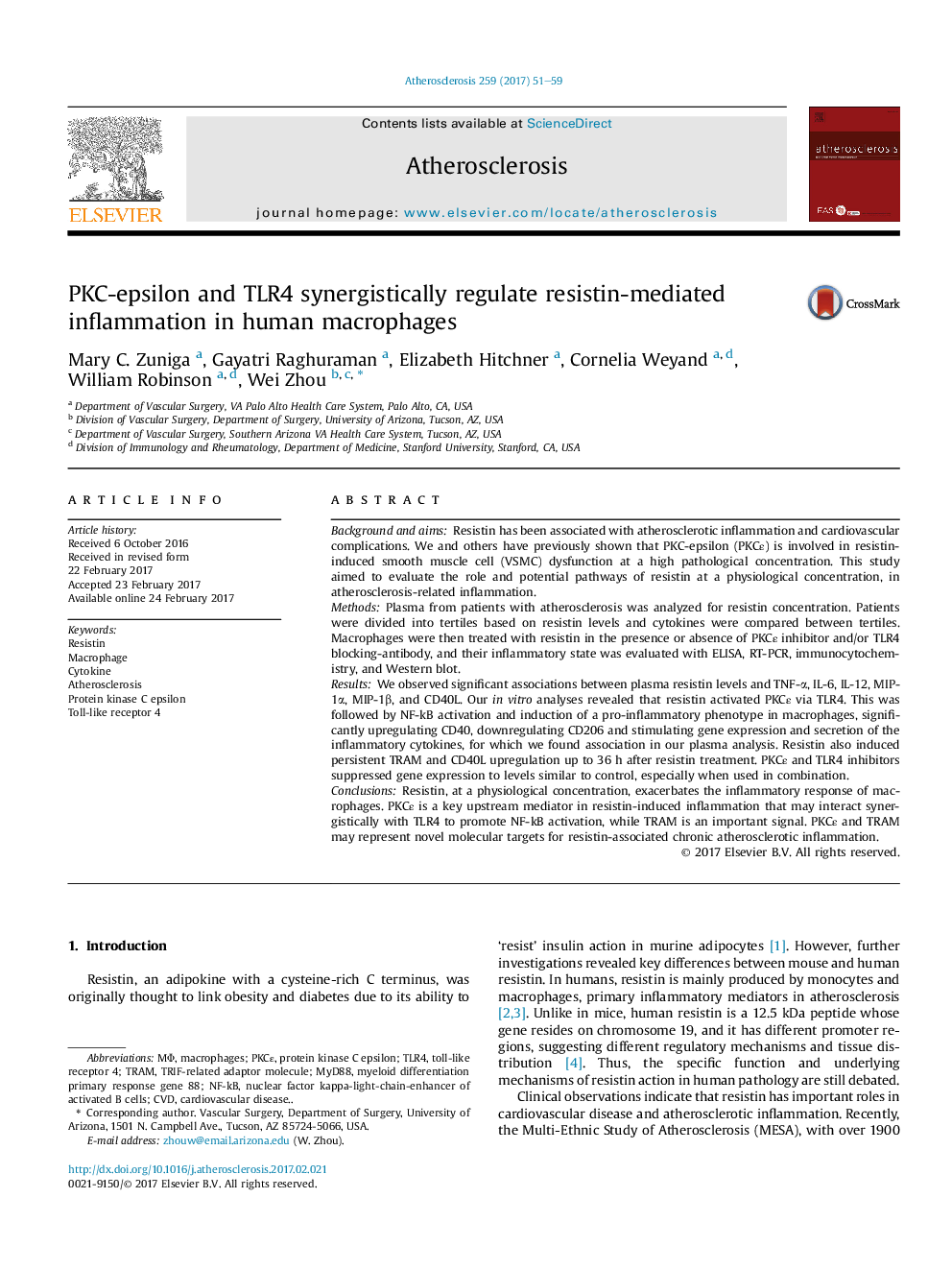| کد مقاله | کد نشریه | سال انتشار | مقاله انگلیسی | نسخه تمام متن |
|---|---|---|---|---|
| 5599418 | 1574706 | 2017 | 9 صفحه PDF | دانلود رایگان |

- High plasma resistin levels are associated with high levels of inflammatory cytokines in patients with atherosclerosis.
- Resistin induces a pro-inflammatory phenotype in macrophages via a TLR4 and PKCε.
- Resistin stimulates NF-kB activity, upregulates CD40 and inflammatory cytokines, and downregulates CD206.
- Resistin treatment further increased resistin gene expression and secretion suggesting a positive feedback loop.
- TRAM and CD40L are persistently upregulated up to 36Â h after resistin treatment.
Background and aimsResistin has been associated with atherosclerotic inflammation and cardiovascular complications. We and others have previously shown that PKC-epsilon (PKCε) is involved in resistin-induced smooth muscle cell (VSMC) dysfunction at a high pathological concentration. This study aimed to evaluate the role and potential pathways of resistin at a physiological concentration, in atherosclerosis-related inflammation.MethodsPlasma from patients with atherosclerosis was analyzed for resistin concentration. Patients were divided into tertiles based on resistin levels and cytokines were compared between tertiles. Macrophages were then treated with resistin in the presence or absence of PKCε inhibitor and/or TLR4 blocking-antibody, and their inflammatory state was evaluated with ELISA, RT-PCR, immunocytochemistry, and Western blot.ResultsWe observed significant associations between plasma resistin levels and TNF-α, IL-6, IL-12, MIP-1α, MIP-1β, and CD40L. Our in vitro analyses revealed that resistin activated PKCε via TLR4. This was followed by NF-kB activation and induction of a pro-inflammatory phenotype in macrophages, significantly upregulating CD40, downregulating CD206 and stimulating gene expression and secretion of the inflammatory cytokines, for which we found association in our plasma analysis. Resistin also induced persistent TRAM and CD40L upregulation up to 36 h after resistin treatment. PKCε and TLR4 inhibitors suppressed gene expression to levels similar to control, especially when used in combination.ConclusionsResistin, at a physiological concentration, exacerbates the inflammatory response of macrophages. PKCε is a key upstream mediator in resistin-induced inflammation that may interact synergistically with TLR4 to promote NF-kB activation, while TRAM is an important signal. PKCε and TRAM may represent novel molecular targets for resistin-associated chronic atherosclerotic inflammation.
Journal: Atherosclerosis - Volume 259, April 2017, Pages 51-59